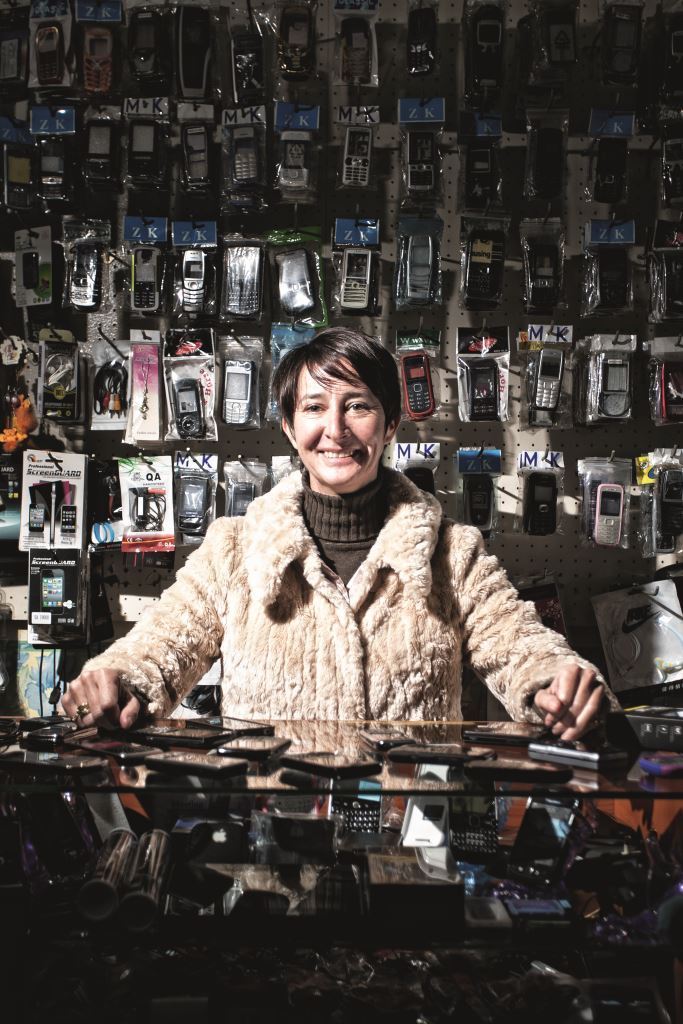Technology is changing the entertainment industry so quickly that it’s difficult to predict where the next media fortunes will be made. There is no shortage of entrepreneurs in this field, one of whom is Emma Kaye. Kaye is a leader in African animation and filmmaking. Her credentials are undisputed—she’s the co-founder of Triggerfish Animation Studios, producers of the award-winning Sesame Street and founder of the Sithengi Cinema Festival in Cape Town. But her focus has shifted from producing content for television and film to finding new ways to distribute entertainment content.
The late Steve Jobs epitomized this type of entrepreneur. The introduction of the iPhone was the game changer: Apple sold 128 million handsets earning the company an estimated $76.6 billion. The smartphone fueled the surge in mobile application use, changing the pricing and the distribution of entertainment forever. In 2008, a year after the iPhone’s launch, 18 billion apps were downloaded from the iTunes store earning the company $4.3 billion. Soon after competitors Larry Page and Sergey Brin—the founders of Google, created the Android platform increasing the amount of app content available to cellphone subscribers.
Kaye watched the evolution of mobile devices, then abandoned the old media platforms she’d relied on and immersed herself in new media; first as the CEO of Breakdesign and then as the founder of Gate 7 New Media, a mobile media, entertainment and content company. Under her stewardship, Breakdesign became one of Nokia and Adobe’s top seven global Flash Lite developers.
She was frustrated that there was a lot of generic content to download which had little relevance for Africa. She wondered whether people were downloading this content only because it was available or whether they were demanding it. So she co-founded Mobfest—Africa’s first user-generated mobile content platform. The first channel, Novel Idea, is a text-based mobile entertainment channel featuring serialized fiction—a first in Africa.
But it didn’t ease her frustration—soon, she had started a new mobile app called bozza.mobi.
“I have worked in the mobile industry for a considerable amount of time and during that time, there was a big gap in the market for content that was relevant for an African community. At the same time, there were barriers to media platforms for people who could produce relevant content. Although there was no shortage of content, there were barriers to producing and distributing that content on a mobile platform,” says Kaye.
She decided to conduct a proof of concept in Khayelitsha in Cape Town and Alexandra in Johannesburg, South Africa. She worked with individuals who could produce content but found access to traditional media prohibitive. The feasibility study was launched on MXit using seven minute mobile spec video content. Within three days, there were 40,000 downloads. Three months later, this number had risen to 170,000.
After the successful proof of concept, Kaye secured investments to build a customized mobile application. Aimed at feature phones, with plans to upscale to smartphones, the application features music, videos and poetry from across the continent.
Move over Nigella! Bozza.mobi recently launched Africa’s cooking channel. Users of bozza.mobi have been glued to the popular episode on ‘how to cook a sheep’s head’ in South African townships. In this particular episode, an industrial blowtorch is used to burn the sheep’s hair, turning it into easily removable ash, which is scraped off with a stone or pot scraper. The head is then thrown into a big water tank to wash off the remaining ash. Then it is cut in half, cooked and served to the restaurant’s customers.
For Kaye, bozza.mobi is about access to self-expression. With over 300 artists, filmmakers and poets on its growing database and with new channels being released daily, bozza.mobi offers these individuals and groups a mobile platform through which to distribute their music, films and poetry. Check out the show about a Congolese woman who used a rundown caravan as her hair salon. She uses bozza.mobi to teach hairdressing. By offering tutorials, small businesses can earn revenue—50% of their channel earnings—while users get free access to content.
The provision of free local content has advantages for handset manufactures too. When Nokia was looking to sell their 3250 series in Europe, they asked Kaye for help.
“We worked with Nokia on creating relevant content for a particular demographic in Europe. We created the interface and content relevant for the skateboarding community. It contained video, news tips and travel guides. Because the content was relevant, the Nokia 3250 series phones sold out,” says Kaye.
Handset manufacturers are now embracing local application development as part of their growth strategies. Ericsson ConsumerLab recently found that the emerging app culture in high-growth markets is driving the uptake of mobile devices. The study showed consumers are not buying smartphones for their superior hardware such as the touch screen, memory capacity, attractive design and resolution size, rather, they want app functionality and faster internet access.
For this reason, Samsung is partnering with app developers such as bozza.mobi, which is working on a new version of their application to be released in six months’ time. Samsung is teaching bozza.mobi developers how to develop apps for different platforms. The improved version of bozza.mobi will be rolled out in Nigeria and Kenya. In Nigeria, Kaye has partnered with IT company, Iroko Partners, founded by Jason Chukwuma Njoku. The firm distributes Nollywood movies online—its services have been well received by the diaspora in the States, England, Canada, Germany and Australia.
Due to the fact that apps are becoming an integral part of cellphone users’ daily lives, Kaye says the new version will also serve as a commercial tool to facilitate informal trading in African communities.
